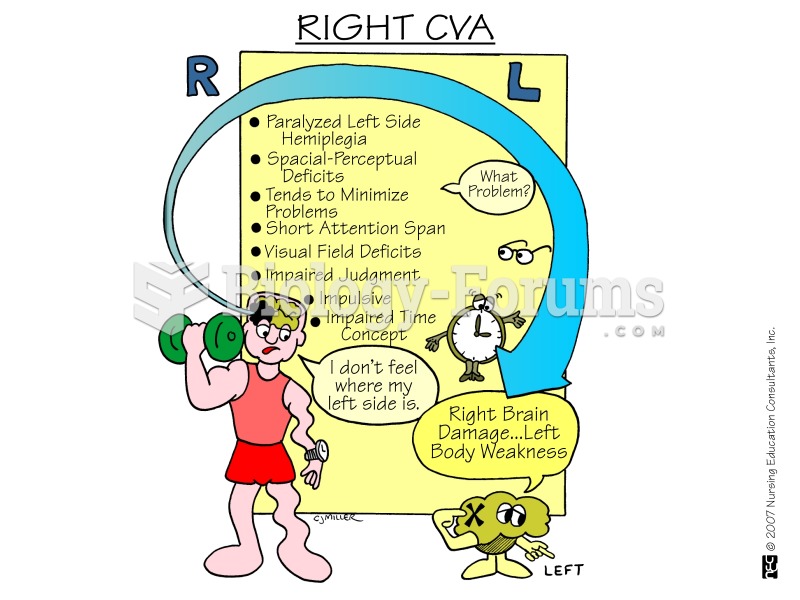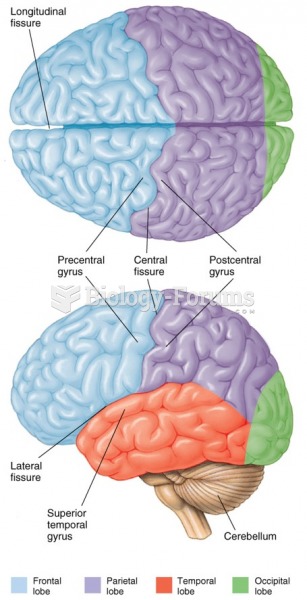|
|
|
Children of people with alcoholism are more inclined to drink alcohol or use hard drugs. In fact, they are 400 times more likely to use hard drugs than those who do not have a family history of alcohol addiction.
If all the neurons in the human body were lined up, they would stretch more than 600 miles.
The average human gut is home to perhaps 500 to 1,000 different species of bacteria.
By definition, when a medication is administered intravenously, its bioavailability is 100%.
All patients with hyperparathyroidism will develop osteoporosis. The parathyroid glands maintain blood calcium within the normal range. All patients with this disease will continue to lose calcium from their bones every day, and there is no way to prevent the development of osteoporosis as a result.







